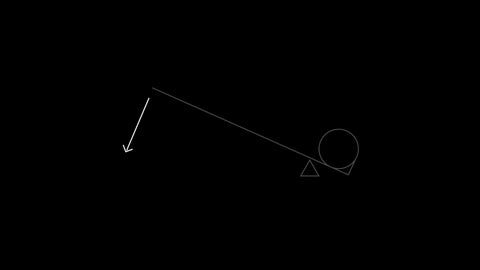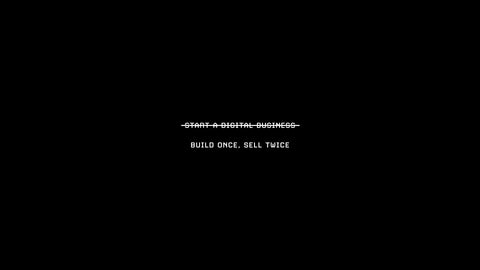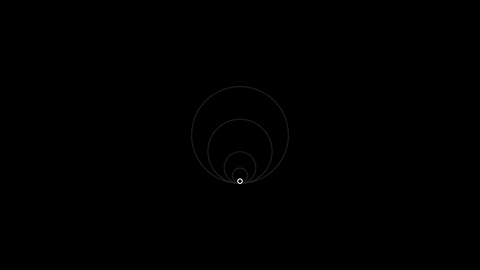"Pride and Prejudice" by Jane Austen (1813)
First impressions mislead; understanding requires openness beyond prejudice.
"Moby-Dick" by Herman Melville (1851)
Obsessive pursuit leads to ruin; unchecked ambition mirrors historical downfalls.
"To Kill a Mockingbird" by Harper Lee (1960)
Moral integrity involves standing against injustice despite societal opposition.
"1984" by George Orwell (1949)
Totalitarianism eradicates individuality; vigilance is necessary to preserve freedom.
"The Great Gatsby" by F. Scott Fitzgerald (1925)
The illusion of wealth masks emptiness; the American Dream can corrupt.
"War and Peace" by Leo Tolstoy (1869)
Personal lives are intertwined with historical forces; individual actions impact history.
"The Odyssey" by Homer (8th century BC)
Perseverance and cunning overcome adversity; the journey shapes the hero.
"Crime and Punishment" by Fyodor Dostoevsky (1866)
Guilt is inescapable after moral transgression; conscience demands reckoning.
"The Catcher in the Rye" by J.D. Salinger (1951)
Resistance to maturity leads to isolation; acceptance is crucial for growth.
"The Lord of the Rings" by J.R.R. Tolkien (1954–1955)
Even the smallest can change destiny; courage and fellowship are vital.
"The Adventures of Huckleberry Finn" by Mark Twain (1884)
Conscience supersedes societal norms; moral choices define character.
"Alice's Adventures in Wonderland" by Lewis Carroll (1865)
Embrace the absurd to navigate uncertainty; curiosity is essential.
"Frankenstein" by Mary Shelley (1818)
Playing creator invites unforeseen consequences; responsibility accompanies power.
"Don Quixote" by Miguel de Cervantes (1605)
Idealism disconnected from reality leads to folly; perception shapes experience.
"Jane Eyre" by Charlotte Brontë (1847)
Integrity and self-respect triumph over adversity; independence is key.
"Wuthering Heights" by Emily Brontë (1847)
Revenge destroys both seeker and target; destructive passions consume.
"The Brothers Karamazov" by Fyodor Dostoevsky (1880)
Moral responsibility is shared; actions affect the collective soul.
"The Alchemist" by Paulo Coelho (1988)
Pursue personal destiny; the journey imparts true wisdom.
"Les Misérables" by Victor Hugo (1862)
Compassion transforms lives; societal change begins with individual acts.
"One Hundred Years of Solitude" by Gabriel García Márquez (1967)
Ignoring history ensures its repetition; solitude isolates communities.
"Brave New World" by Aldous Huxley (1932)
Unbridled technological control erodes humanity; critical thought is essential.
"Anna Karenina" by Leo Tolstoy (1877)
Passion conflicts with societal norms; choices bear profound consequences.
"The Grapes of Wrath" by John Steinbeck (1939)
Perseverance amid hardship fosters solidarity; dignity persists in struggle.
"The Count of Monte Cristo" by Alexandre Dumas (1844–1846)
Revenge lacks fulfillment; forgiveness liberates.
"Dracula" by Bram Stoker (1897)
Ancient evils persist; vigilance guards against unseen threats.
"Great Expectations" by Charles Dickens (1861)
True worth lies in character, not social ascent.
"The Hobbit" by J.R.R. Tolkien (1937)
Unexpected journeys lead to self-discovery; bravery emerges in the unlikeliest.
"Madame Bovary" by Gustave Flaubert (1856)
Discontent breeds self-destruction; escapism has dire costs.
"Fahrenheit 451" by Ray Bradbury (1953)
Censorship extinguishes knowledge; preservation of ideas safeguards freedom.
"The Picture of Dorian Gray" by Oscar Wilde (1890)
A life of excess without morality decays the soul.
"Catch-22" by Joseph Heller (1961)
War's absurdity exposes bureaucratic paradoxes; logic is subverted.
"The Old Man and the Sea" by Ernest Hemingway (1952)
Endurance defines dignity; struggle imparts honor.
"A Tale of Two Cities" by Charles Dickens (1859)
Self-sacrifice embodies love; redemption is attainable through noble acts.
"Slaughterhouse-Five" by Kurt Vonnegut (1969)
The destructiveness of war distorts reality and time.
"Heart of Darkness" by Joseph Conrad (1899)
Darkness resides within humanity; extreme conditions reveal true nature.
"Ulysses" by James Joyce (1922)
Profound meaning exists in ordinary life; introspection uncovers depth.
"Gone with the Wind" by Margaret Mitchell (1936)
Resilience ensures survival; adaptability overcomes turmoil.
"The Iliad" by Homer (8th century BC)
Pride incites conflict; honor motivates warriors.
"Lord of the Flies" by William Golding (1954)
Civilization's veneer is fragile; inherent instincts emerge without order.
"Animal Farm" by George Orwell (1945)
Power corrupts ideals; revolutions can betray their principles.
"The Little Prince" by Antoine de Saint-Exupéry (1943)
Essential truths are invisible; imagination transcends materialism.
"A Clockwork Orange" by Anthony Burgess (1962)
Freedom requires moral choice; enforced goodness is hollow.
"Dr. Jekyll and Mr. Hyde" by Robert Louis Stevenson (1886)
Duality exists within; repressing nature leads to catastrophe.
"The Scarlet Letter" by Nathaniel Hawthorne (1850)
Public judgment impacts identity; sin and redemption are complex.
"The Call of the Wild" by Jack London (1903)
Nature reclaims instinct; survival demands adaptation.
"Their Eyes Were Watching God" by Zora Neale Hurston (1937)
Self-realization emerges through personal journey; autonomy empowers.
"The Three Musketeers" by Alexandre Dumas (1844)
Unity and loyalty overcome adversity; camaraderie is strength.
"Macbeth" by William Shakespeare (1606)
Ambition unchecked leads to downfall; moral decay brings ruin.
"Romeo and Juliet" by William Shakespeare (1597)
Feuds breed tragedy; impulsive actions have fatal results.
"Hamlet" by William Shakespeare (1603)
Indecision hampers action; contemplation delays resolution.
"Othello" by William Shakespeare (1603)
Jealousy destroys trust; manipulation exploits insecurities.
"The Divine Comedy" by Dante Alighieri (1320)
Journey through trials leads to enlightenment; deeds determine fate.
"Paradise Lost" by John Milton (1667)
Rebellion incurs loss; the struggle between good and evil persists.
"King Lear" by William Shakespeare (1606)
Pride and folly invite disaster; recognition comes too late.
"The Kite Runner" by Khaled Hosseini (2003)
Confronting past wrongs enables redemption; loyalty shapes destiny.
"The Handmaid's Tale" by Margaret Atwood (1985)
Oppression thrives when freedoms erode; resilience endures.
"Life of Pi" by Yann Martel (2001)
Faith and storytelling navigate survival; reality is subjective.
"The Secret Garden" by Frances Hodgson Burnett (1911)
Healing arises from nature; nurturing transforms the self.
"Emma" by Jane Austen (1815)
Interference breeds misunderstanding; self-awareness fosters harmony.
"A Farewell to Arms" by Ernest Hemingway (1929)
Love offers refuge in chaos; war devastates personal lives.
"Middlemarch" by George Eliot (1871–1872)
Idealism confronts reality; personal growth stems from experience.
"The Hunchback of Notre-Dame" by Victor Hugo (1831)
True beauty is internal; society misjudges appearances.
"Siddhartha" by Hermann Hesse (1922)
Enlightenment is personal; wisdom is self-derived.
"Dune" by Frank Herbert (1965)
Power and destiny intertwine; ecology impacts civilization.
"Things Fall Apart" by Chinua Achebe (1958)
Cultural collision leads to disintegration; tradition confronts change.
"Candide" by Voltaire (1759)
Optimism challenges adversity; critical thought combats naïveté.
"Ender's Game" by Orson Scott Card (1985)
Manipulation exploits innocence; ethical leadership is imperative.
"Watership Down" by Richard Adams (1972)
Courage and cooperation ensure survival; leadership emerges in crisis.
"The Hitchhiker's Guide to the Galaxy" by Douglas Adams (1979)
Absurdity pervades existence; humor navigates the inexplicable.
"The Road" by Cormac McCarthy (2006)
Hope persists amid desolation; love drives perseverance.
"The Master and Margarita" by Mikhail Bulgakov (1967)
Satire unveils societal flaws; the supernatural critiques reality.
"White Fang" by Jack London (1906)
Environment shapes being; instinct and experience mold character.
"Oliver Twist" by Charles Dickens (1838)
Innocence suffers in harsh conditions; societal reform is necessary.
"The Jungle Book" by Rudyard Kipling (1894)
Adherence to natural laws fosters harmony; identity is influenced by surroundings.
"Treasure Island" by Robert Louis Stevenson (1883)
Adventure tests morality; greed invites peril.
"Neuromancer" by William Gibson (1984)
Technology blurs reality; identity fractures in cyberspace.
"A Passage to India" by E.M. Forster (1924)
Misunderstandings breed conflict; empathy bridges divides.
"The Godfather" by Mario Puzo (1969)
Family loyalty conflicts with ethics; power consolidates through ruthlessness.
"Rebecca" by Daphne du Maurier (1938)
The past overshadows the present; identity is influenced by legacy.
"Invisible Man" by Ralph Ellison (1952)
Society overlooks individuality; self-definition is crucial.
"The Sun Also Rises" by Ernest Hemingway (1926)
Post-war disillusionment seeks meaning; escapism masks emptiness.
"Beloved" by Toni Morrison (1987)
The legacy of trauma endures; confronting the past is essential.
"Atlas Shrugged" by Ayn Rand (1957)
Individualism fuels progress; collectivism hampers innovation.
"Love in the Time of Cholera" by Gabriel García Márquez (1985)
Enduring love transcends time; patience sustains desire.
"The Name of the Rose" by Umberto Eco (1980)
The pursuit of knowledge challenges authority; truth withstands suppression.
"Perfume" by Patrick Süskind (1985)
Obsession distorts morality; sensory experiences drive actions.
"The Bell Jar" by Sylvia Plath (1963)
Mental turmoil isolates; societal pressures exacerbate struggle.
"The Trial" by Franz Kafka (1925)
Faceless bureaucracy oppresses; justice remains elusive.
"Infinite Jest" by David Foster Wallace (1996)
Addiction consumes; entertainment becomes emptiness.
"Dr. Zhivago" by Boris Pasternak (1957)
Love and art endure amidst turmoil; personal desires clash with upheaval.
"East of Eden" by John Steinbeck (1952)
Free will shapes destiny; the struggle between good and evil is internal.
"A Portrait of the Artist as a Young Man" by James Joyce (1916)
Self-discovery leads to independence; artistic expression seeks liberation.
"The Canterbury Tales" by Geoffrey Chaucer (14th century)
Human nature is diverse; stories reflect societal facets.








